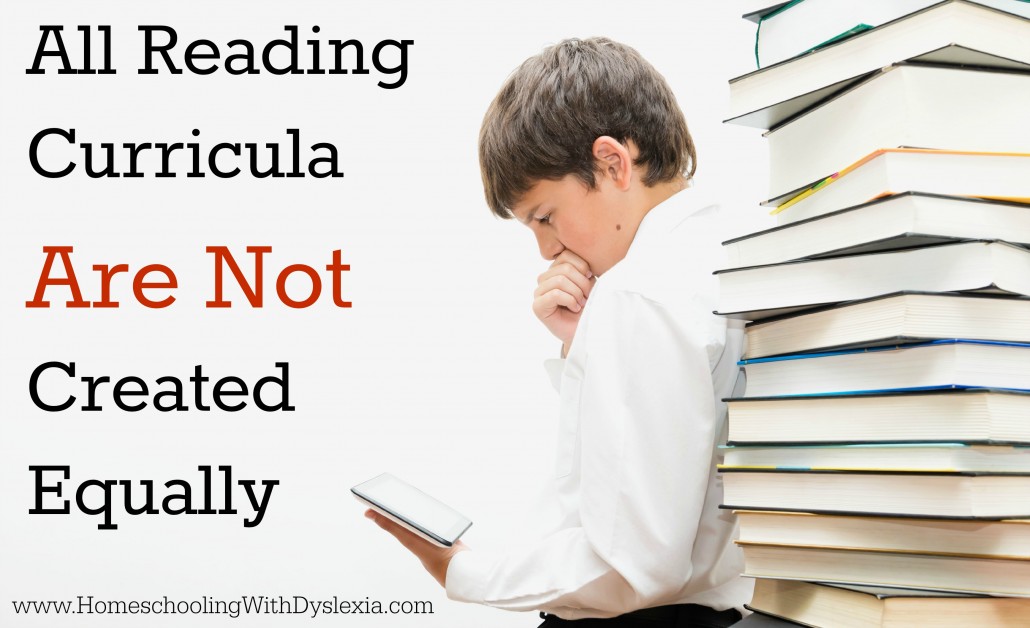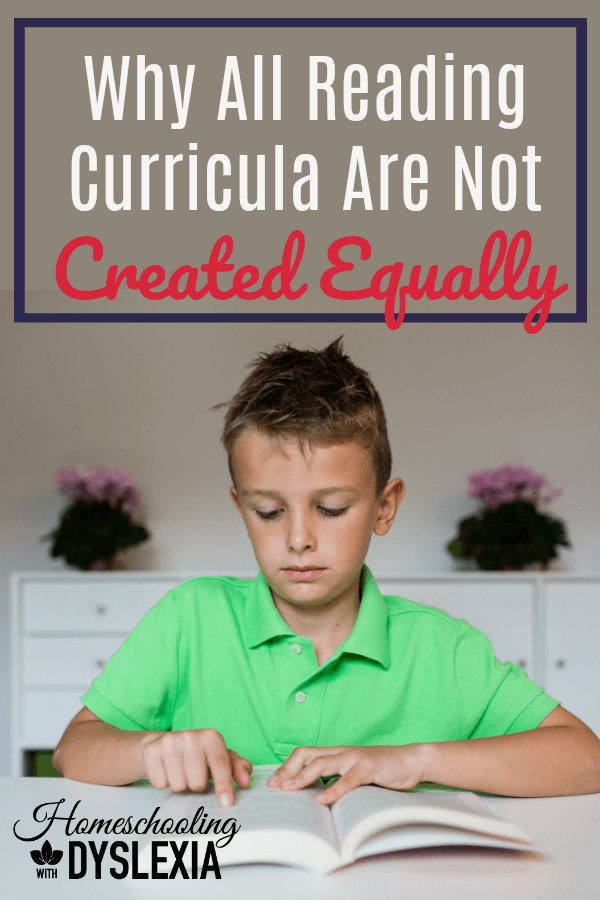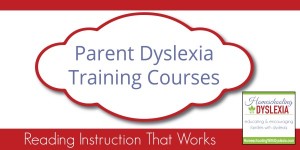Not all reading programs are the same because not all learners are the same. Here are some reasons that all reading curricula are not created equally.

I was always a good reader. In fact, I never even knew that there were bright people who had trouble learning to read. That all changed when our first born, 7-year old son was still not reading – not even close.
When we first began homeschooling our kids some 20 years ago, we bought a popular reading program called Hooked On Phonics. Its flash cards, books and tapes came in a tidy little case that made me certain this program was all that we needed. When that program didn’t work, we switched to an expensive game-based program called The Phonics Game. Reading was important to us and so we bit the bullet and bought it. When that program didn’t work, we switched to a simple book that assured us that we could teach our son to read in 100 easy lessons. When that program didn’t work we began to realize that there may be more to the story than just not having the right curriculum.
This was before the Internet, I know – I’m so old – but we were searching everywhere for answers to why our precocious son was unable to remember the rules and sounds and, heck, even the word he just read 5 minutes ago!
We finally had him tested by an educational psychologist and learned that he had dyslexia. It was incredibly helpful to understand that our son was indeed very bright and that his struggles were not due to poor parenting or any other serious ailments. The trouble was that as a homeschooler, we still weren’t sure how to teach him to read.
Teaching Reading With Dyslexia
Not all reading programs are the same because not all learners are the same.
- 5% of kids will learn to read on their own
- 20-30% will learn to read relatively easily once exposed to formal instruction; most methods will be effective
- 30-50% will find learning to read to be difficult without direct, systematic, explicit instruction
For the 30-50% of kids who need specialized instruction, it doesn’t matter how much money or time you spend, they will not learn to read well with the wrong methods.
For our oldest son, who is about to celebrate his 23rd birthday, he was finally able to read on his own at about 12 years old. That meant that for those 5 years, even though we read aloud and listened to a lot of audio books, he was missing out on a lot of learning. The lag in his reading development caused him stress and embarrassment at times, despite the fact that we homeschooled and he had more of a controlled learning environment. This does not need to be the case, by the way.

Then I stumbled upon the book called Overcoming Dyslexia by Sally Shaywitz at our local library.
This book transformed my understanding, not only of what dyslexia is, but of what kinds of reading instruction really work. I wish that I could take back all of those years of trial and error; so many years of wasted time and wasted money.
Although Overcoming Dyslexia was written recently about recent research, research into dyslexia and how to teach people with dyslexia to read has been around for over 100 years!
No child needs to be 12 when they learn to read. With early intervention kids with dyslexia can learn to read right alongside their peers and never fall behind or experience the shame or embarrassment of poor reading skills.
To learn more about teaching kids with dyslexia to read, read these posts:
Reading Curricula for Teaching Dyslexic Kids
To learn more about research-based, effective reading programs, take my course, Reading Instruction That Works.
Topics covered are:
- Understand the research about dyslexia so you can evaluate the myriads of programs, supplements and services that are offered to parents of dyslexics.
- Understand the research-based methods of reading instruction that really work with the dyslexic learner.
- Find a program, curriculum or other service to fit your family’s needs.
- How much does dyslexia remediation cost?
- How long does it take?
- What about those ‘alternative’ treatments and therapies? Do they work? How can we know?






0 Comments